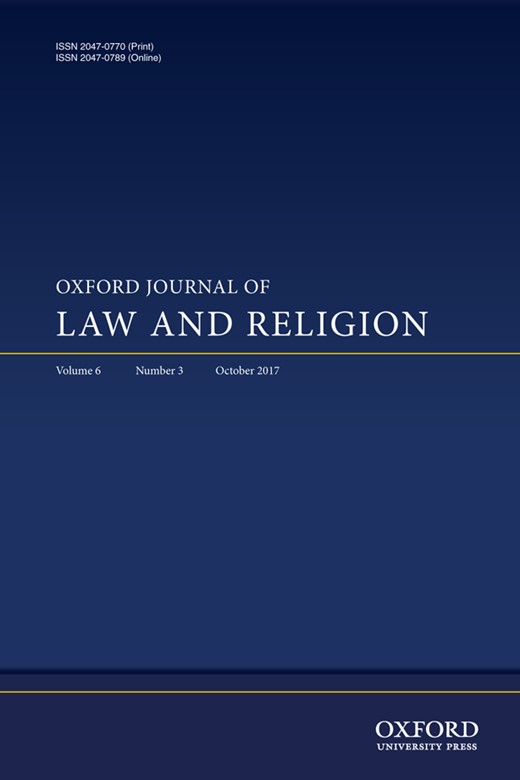-
Views
-
Cite
Cite
Arif A Jamal, Considering Freedom of Religion in a Post-Secular Context: Hapless or Hopeful?, Oxford Journal of Law and Religion, Volume 6, Issue 3, October 2017, Pages 433–450, https://doi.org/10.1093/ojlr/rwx046
Close - Share Icon Share
Abstract
The value of freedom of religion as a stand-alone right is being discussed and challenged a great deal today. Freedom of religion is impugned as being impossible to apply, or redundant because it is replaceable by other rights or resting on an outdated special status for religion that is no longer justified. Framing these debates is the context of post-secularism’ that both challenges old frameworks and highlights increasing social and religious diversity. Is freedom of religion a hapless concept in this context or is it still hopeful? This article presents a defence of the value of freedom of religion. It argues essentially that freedom of religion is able both to recognize the epistemic character of religious adherence and its contribution to challenging and enhancing our epistemic horizons, as well as, importantly, to provide a symbolic affirmation to those who have religious convictions. Freedom of religion thus emerges as still hopeful.



